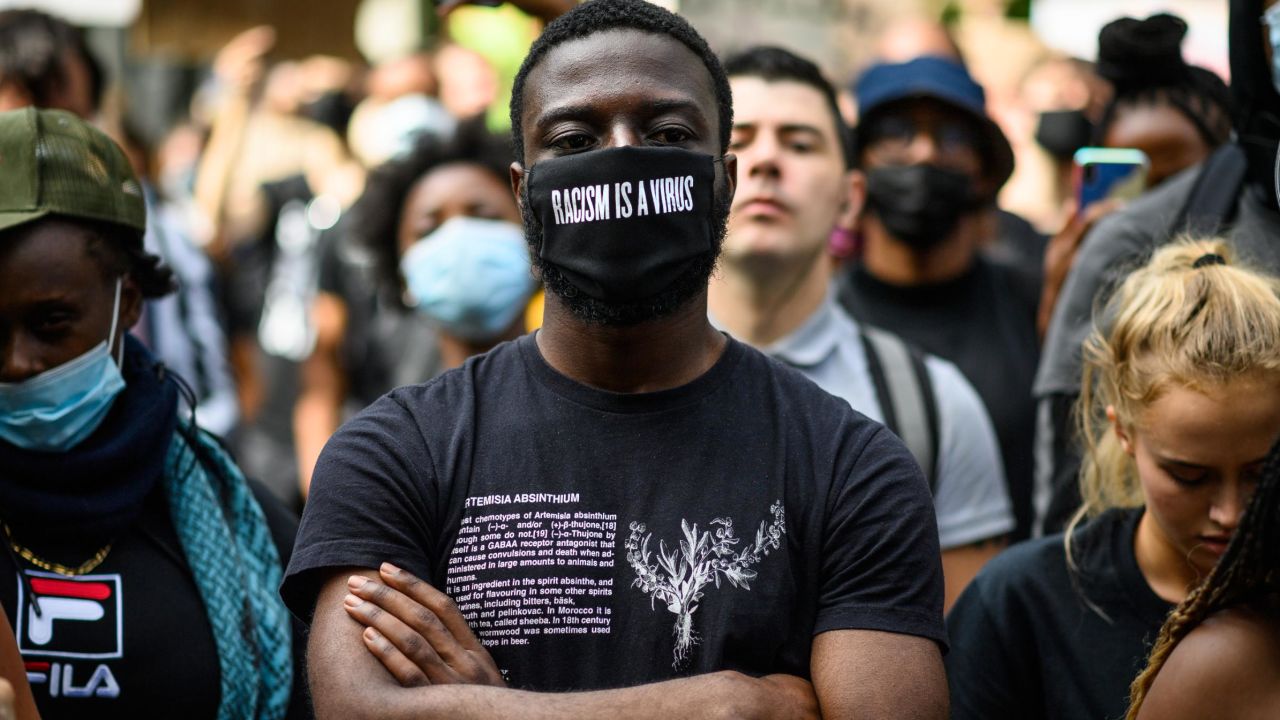New York
Alarming Racial Disparity Exists Throughout The New York Legal System.

Alarming Racial Disparity Exists Throughout The New York Legal System: A recent inquiry into New York’s criminal justice system revealed shocking racial discrepancies, revealing systematic injustice. Over the last two decades, Black people have been convicted of crimes and misdemeanors 21 times more than white people in Manhattan. Brooklyn has a sevenfold Black-white conviction gap, a worrying trend countrywide.
Further review of county data shows how widespread this problem is. In Schenectady County, Black citizens are convicted of one felony every three, far outpacing white inhabitants. Blacks are ten times more likely to be sentenced in Albany and Onondaga counties than whites.
According to the report, Black people account for 14% of the state’s population but 40% of convictions for misdemeanors and felonies. Latinx people, who make up 16% of the population, are convicted twice as frequently as white people.
Drug crimes demonstrate systematic prejudice. Black people are 20 times more likely to be arrested and convicted of felony drug charges in Manhattan despite white people using more drugs.
The restriction on felons sitting on juries further perpetuates this injustice by reducing Black communities’ justice system representation. The New York Civil Liberties Union spearheads calls for thorough and inclusive change. The proposed law would end the restriction, stressing the need for a diverse jury pool for fair representation and treatment in criminal court.
As NYCLU plaintiff Daudi Justin correctly states, Each juror should bring an informed perspective, including those who have experienced the criminal legal system. These frightening figures highlight the need for a comprehensive and fair response as the state struggles.
Revelations Of Systemic Racism In New York’s Criminal Justice System
The criminal justice system in New York is highly racist, especially against Black people. Numerous studies over the last two decades have shown startling inequalities in arrests, charges, convictions, and sentences, indicating apparent prejudice against Black people. Manhattan, famed for its riches and inequality, has the worst statistics, with Black individuals sentenced 21 times more than whites. Black jury disenfranchisement has worsened such gaps by denying them equitable representation and prolonging biased convictions. This terrible fact requires immediate legislative action to end discrimination and create a more equal judicial system that respects the rights of all New Yorkers, regardless of race.
Alarming Racial Disparity: Exposing New York State’s Injustice
Racial inequality in New York’s criminal justice system throughout the entire, not simply Manhattan. In Brooklyn, Schenectady, Albany, and Onondaga counties, Black people are over-criminalized, resulting in higher conviction rates than white people. Shocking county data show that Black New Yorkers account for a disproportionately high number of misdemeanor and felony convictions while making up a lower fraction of the state’s population. These findings demonstrate the necessity for comprehensive and statewide legislation to rectify New York’s justice system’s deep-rooted racial inequities.
Read Also: Talk Of Racism Proves Thorny For GOP Candidates Of Color
Promoting Inclusive Civic Engagement And Legal Reforms To End Racial Prejudice
New York’s criminal justice system’s racial bias harms Black people’s rights and fosters a cycle of injustice that limits their social and economic possibilities. Drug-related discrimination highlights the stark differences in arrests and convictions between Black and white people despite identical drug usage. Black jurors are disenfranchised, denying them a fair trial and undermining diversity and inclusiveness in the judicial system. Therefore, broad legislative measures that remove the bar on felons sitting on juries are necessary. These changes must be combined with steps to help previously jailed people reintegrate into society and participate in civic life. Only such concentrated efforts can help New York confront its criminal justice system’s deep-rooted racial prejudice.
Racial Bias’ Socioeconomic Effects On New York’s Black Community
New York’s criminal justice system’s racial prejudice affects Black people’s financial well-being outside courtrooms. Beyond immediate penalties, felons confront insurmountable impediments to work, housing, education, and other essential civic engagement. The disproportionate targeting and punishment of Black people perpetuates social inequality and disenfranchisement. Thus, the Black population faces systematic barriers to economic stability and social mobility, deepening New York’s racial divide.
Unveiling Institutional Biases: Reassessing Policing And Prosecutions For Fairness
New York’s criminal justice system’s severe racial inequities need thorough police and prosecutorial reform. The disproportionate presence of law enforcement in Black communities and the higher arrest rates for Black people regardless of geography demonstrate the criminal justice system’s systemic biases. Overcharging Black defendants compared to white defendants perpetuates legal inequality. Addressing these institutional biases requires community engagement, police accountability, and equitable resource distribution to create a more just and inclusive legal system that protects all people’s rights, regardless of race.
Empowering Affected Voices: Inclusive Jury Representation And Beyond
The views and experiences of those impacted by the discriminatory criminal justice system must drive inclusive change advocacy. Because different viewpoints ensure fair and equitable trials, initiatives to remove the bar on felony convictions from juries must acquire pace. This requires a coordinated drive for legislative reforms that promote judicial participation by previously disenfranchised groups. Additionally, robust support systems and attempts to help ex-offenders reintegrate into society are essential. New York can eliminate structural obstacles to racial justice in its criminal justice system by amplifying the voices of those directly affected and encouraging civic involvement.












You must be logged in to post a comment Login